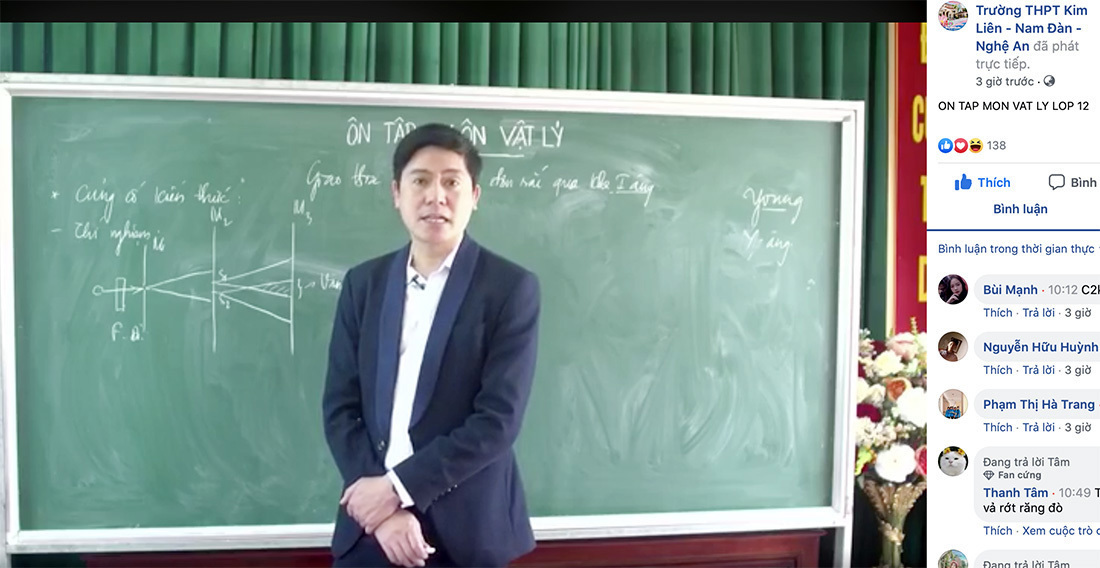“Online teaching is the choice for schools in current conditions for many reasons,” said Dang Hoang Giang from the Hanoi University of Social Sciences and Humanities, a member school of the Hanoi National University.

The pandemic makes it inconvenient to organize in-person classes. Online classes also help teachers and students save time, and take the initiative in teaching and learning.
Huynh Luu Duc Toan, a postgraduate at Otto Beisheim University in Germany, thinks that online teaching and digital transformation in education are inevitable.
“We are talking about 4.0 technology, which not only means paying tuition with e-money, but also means online teaching,” Toan said.
Toan said a Harvard University study found that once people change their habits because of epidemics or unusual conditions, they are more adaptive and realize new things sometimes give better results.
At the school where Toan is studying in Germany, lecturers are considering Covid-19 an opportunity to try things that they had not done in the past.
According to Thai Van Thanh, director of the Nghe An Education and Training Department, many schools in the province began applying online teaching soon during the first Covid-19 outbreak.
| General schools and universities have organized online teaching for the last six months because of Covid-19. However, even when the pandemic ends, online teaching will still continue. |
“Online teaching is part of modern education. In a lifelong learning society, people have to study online because they cannot always attend offline classes,” he said.
Thanh disagrees that online teaching can be organized only in localities with good conditions, saying that online teaching will bring great effects especially in remote areas.
“With online teaching, students in difficult areas can also study with good teachers,” he explained.
About 80 percent of students in Nghe An attend online classes. The remaining 20 percent of students live in remote areas where internet is unreachable, or in difficult conditions.
Thanh said in the future, even when Covid-19 ends, the local education department will work with local television to provide lessons to students at fixed time frames.
Do Van Hung from the Hanoi National University noted that there are many useful technologies and teaching aids that can support online teaching and learning. Facebook, Zalo or Skype, for example, can transmit lectures.
However, Hung said, schools need to have a technological infrastructure and a compatible integrated software platform where teachers can teach online, mark school papers online and control student presence, and where students can exchange views.
Le Huyen

Hanoi proposes validation of online teaching
Online teaching is the initiative of the country’s education sector, not only for responding to learning in pandemic time.

VN Education Ministry issues regulations for online teaching fees
Deputy Minister of Education and Training Pham Ngoc Thuong has issued instructions regarding tuition fees for the 2019-20 and 2020-21 academic years.